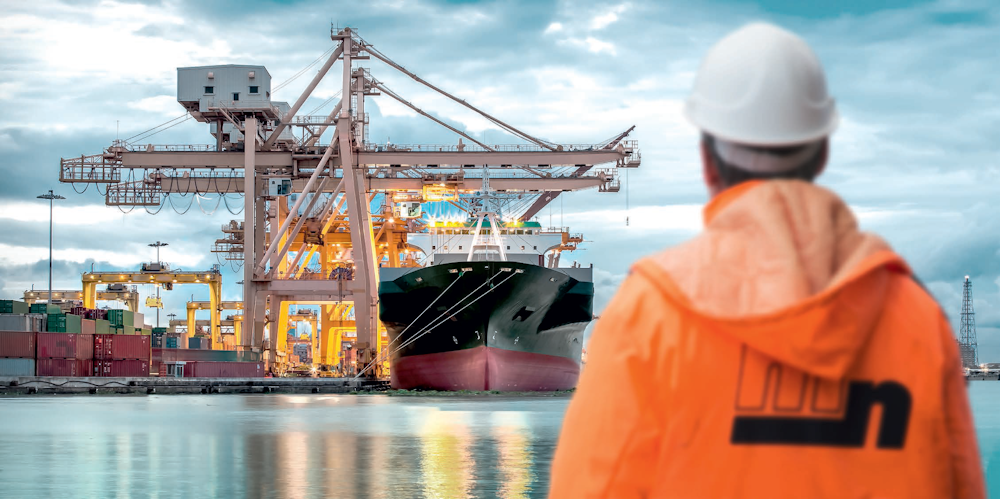
“Marlow Navigation Crew & Ship Management” by Graptaloyia, CC BY-SA 4.0
| Zero Emission Shipping Project | |
|---|---|
| Name: | Safety of Crew in Low/Zero Emission Ships (SCILZS) |
| Start/End Date: | October 2023-February 2025 |
| Project Status: | Completed |
| Point of Contact: | Mette Festersen Jensen (DMA) |
| Pillar: | Ships |
Crew safety is a key theme when considering transitioning to vessels fueled by alternative fuels. The project seeks to contribute to knowledge exchange on existing and planned procedures for ensuring crew safety and facilitating crew training on vessels using alternative fuels, with the aim to support first-movers by highlighting the early industry experiences and insights on how to ensure the safety of the seafarers and thus increase confidence in the use of alternative fuels.
Project Objective:
The Safety of Crew in Low/Zero Emission Ships (SCILZS) project, has the following objectives:
- Ensure knowledge sharing amongst first movers and other relevant stakeholders on how to develop crew training and procedures to ensure crew safety on ammonia-, hydrogen- or methanol-fuelled ships.
- Map the needed competencies and training for seafarers when operating ships using ammonia, methanol or hydrogen as a fuel.
- Contribute to the dissemination of the results from the Mærsk Mc-Kinney Møller Center for Zero Carbon Shipping’s ammonia safety project on competences and training.
Project Milestones:
- Project launched in October 2023
- Mapping and analysis of crew safety for hydrogen and methanol as fuel from January to April 2024
- Completion of final report
Key Findings:
Seafarers play an important role in the decarbonization of international shipping. When it comes to ensuring crew safety on board ships fuels by alternative fuels such as methanol or liquid hydrogen it is important to consider:
- Procedures
- Technical skills
- Non-technical skills
- Risk assessments
- Safety and risk awareness
- Training courses
Previous experience from introducing LNG is essential for building future seafarer competence. The current STWC and IGF basis and advance courses will form the basis with the important addition on fuel specific knowledge. Furthermore, it is important to take into consideration the different characteristic of these new marine fuels when developing the training modular course for seafarers.
First mover example with crew training for methanol fueled ships
- The approach taken to methanol training was a focus on IGF courses supplemented by an in-house methanol-specific course, which focused on the unique hazards of methanol as a fuel, including differences in firefighting, PPE usage, and maintenance procedures.
First mover example with crew training for liquid hydrogen fueled ships:
- Experience with LNG was leveraged and adapted for liquid hydrogen. Training was approached through IGF courses, a hydrogen-specific course, and training from the manufacturer. High automation levels, and a specialised maintenance crew mitigated hazards.
Find the report here:
- Safety of Crew in Low/Zero-Emission Ships Report
- Mapping of Seafarer Competence on Low/Zero-Emission Ships Report
Ammonia as fuel – Competencies & Training:
Current frameworks for seafarer training is a baseline, however insufficient for ammonia fuel challenges. The Ammonia as Fuel – Competencies and Training project addresses these gaps. Existing frameworks should incorporate specialized knowledge about the unique characteristics and hazards that accompany this fuel. We therefore call to consider this information and take appropriate action to account for ammonia as fuel in training frameworks and issuance of interim guidelines.
Read the comprehensive analysis and recommendations on seafarer competencies and training here: https://www.zerocarbonshipping.com/publications/ammonia-as-fuel-competencies-and-training/.
Leading Members:
Danish Maritime Authority, Mærsk McKinney Møller Center for Zero Carbon Shipping
Project Participants:
BP, BunkerOne, ClassNK, DFDS, Eltronic FuelTech, Mærsk, Global Centre for Maritime Decarbonisation, Minerva Marine, Norled, Stena Line, Total Energies, Woodside